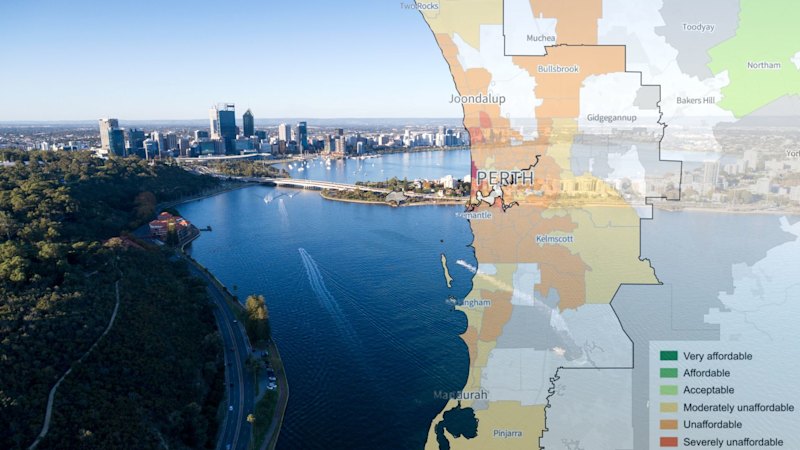“This housing crisis is no longer confined to those on the lowest incomes, it’s climbing the ladder affecting working families … effectively plunging them into housing stress.”
Snell said that while the state government were making progress, what the state needed was “ambition that matches the scale of the crisis”.
“That means an additional 5000 social and affordable homes per year, capping rents, reining in short-stay rentals, ending no grounds evictions, and improving minimum standards,” she said.
SGS Economics and Planning principal Ellen Witte said Perth’s rental market has shifted from steady to spiralling.
“In the three years before COVID, median rents rose by just 1 per cent a year, but over the three years since, they’ve surged by around 14 per cent a year,” she said.
“Since 2020, rents in Perth have climbed by more than 90 per cent, completely erasing the affordability gains made in previous years.”
So, how is unaffordability actually impacting renters?
The index found Perth’s coastal and central suburbs recorded the worst affordability.
It classified rent for single JobSeekers and single pensioners as critically unaffordable in Perth and regional WA, and extremely unaffordable for single parents working part-time.
For a full-time hospitality worker, rents are extremely unaffordable in Perth chewing up half of their income, and severely unaffordable for the regional WA taking 44 per cent.
Matilda Campbell (a pseudonym to protect her identity for future rental applications) said she had been renting a spare room that was advertised online, in a home with parents and their young child.
They had advertised the room at a cheap rate to help them offset their mortgage and the arrangement had been working, Campbell said, until they began asking her to look after their child for them.
Campbell started looking for another place to stay, but found nothing within reach.
“I was studying and working. I had a casual job that didn’t have any guaranteed hours. My income, it was pretty bad. I think I was making about $600 a week,” she said.
“There were some (rental options) around for $250 a week, but that just felt very unaffordable to me at the time.”
Campbell now has a full-time job, but had to move back in with her parents.
“So many people are capitalising on the desperation of others,” she said.
“It is a basic need – housing is a basic need and a human right, and people are doing anything they can to get what they want out of that sometimes.”
She said the laws needed to change before anything got better.
“I think there should be rental caps, and I don’t think real estate agents should be able to determine the price of a property, there needs to be an independent body formed that determines the value,” Campbell said.
“They must ask agents and landlords: ‘Where did you get the price from when you were pricing this rental? How did you come up with that number?’
“Overwhelmingly, the answer every single time I have asked has been ‘I’m matching market value’, but the people who decide the market value are the people who have investment properties so of course it’s going to increase.”
In another case, Lynette, 72, who did not want her last name used, and her husband, 73, are living on pension payments of $966 per week.
The rent on their apartment has just been increased to $825 per week.
Lynette said her husband could only work for a few hours per day because if he worked longer, they would lose their pension.
The pair are now worried they will become homeless.
“Landlords are extremely greedy, and we know first hand it is nothing to do with their mortgage,” Lynette said.
“I’m ready to explode.”
Housing All Australians founder and executive director Robert Pradolin said the rental crisis was also having a negative impact on WA’s economy.
“From cafes and hotels to hospitals and childcare centres, businesses across WA are struggling to find staff because there’s nowhere affordable for them to live nearby,” he said.
“Even WA’s community services sector – the very people supporting our most vulnerable – can’t recruit or retain staff because workers can’t afford to live in the communities they serve.
“Housing that people can afford is absolutely critical economic infrastructure and without it our prosperity is being held back.”
Start the day with a summary of the day’s most important and interesting stories, analysis and insights. Sign up for our Morning Edition newsletter.
Read the full article here

